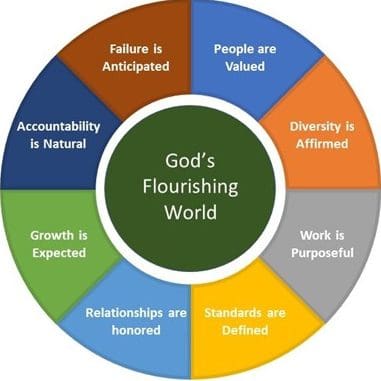#325 A Flourishing World: Growth is expected
A significant part of God’s flourishing world was the marvelous and diverse animal kingdom. God quickly gives Adam an assignment in relation to the animal world.
19 Now the Lord God had formed out of the ground all the wild animals and all the birds in the sky. He brought them to the man to see what he would name them; and whatever the man called each living creature, that was its name. 20 So the man gave names to all the livestock, the birds in the sky and all the wild animals (Genesis 2:19-20, NIV).
The assignment God gave to Adam is profound in so many regards. It sets him apart from the animal world and prepares the stage for God to create a companion suitable for him. It demonstrates God’s expectation that Adam was not a bystander; he was to rule over the creation. This assignment also reveals that God expected Adam to grow and develop. There was work to do and God expected Adam to learn and grow. Scholars and scientists debate over the actual number of animals that Adam needed to name and it’s not likely that he had to name all of the currently known 1.2 million species of animals. Nevertheless, the task was not an assignment for a few minutes or a couple of hours! Serving leaders observe that the expectation of growth is an essential ingredient for a flourishing world.
Expecting growth accelerates flourishing by acknowledging the intent.
God brings the animals to Adam and expected Adam to name them. God had created Adam with the capacity to name the animals but now Adam had to grow into this potential and come up with names! God could have given the names to Adam and asked him to memorize them but He wanted Adam to grow. Growth is baked into our DNA and is a natural expectation. We enjoy the clumsy efforts of infants as they learn to walk but we expect them to grow and mature. We anticipate the advancement of knowledge and maturity that comes as children progress through their formal education. And this design for growth is intended to continue our entire lives. Serving leaders acknowledge God’s intent for human growth.
Expecting growth accelerates flourishing by anticipating the impact.
God must have smiled as He watched Adam thinking and then speaking out a name! And He imagined a world filled with men and women each stretching and growing, learning to master their domain. But sadly, many people today simply show up at work for a paycheck, not expecting to change or grow. They join churches expecting only to attend meetings and be inspired. Serving leaders look at those they serve and not only see who they are now, but see what they could become. They anticipate the growth of the entry level worker to become a manager. They expect the newest member to grow into a future leader. They dream of their organization being filled with people who are fully alive, learning and growing in their capacity to shape their world.
Expecting growth accelerates flourishing by accepting the implications.
Serving leaders also realize that God has placed them in a position of leadership to accelerate the process of growth. They first make sure that they are growing themselves, continually seeking to improve and learn. Then they observe that God deliberately gave Adam an assignment to help him grow. Serving leaders take responsibility to serve those they lead by giving challenging assignments that will stretch the capacity of their followers. They encourage, mentor, coach and guide others to reach their full potential. And, like God must have done, they watch with a satisfied smile on their face as they observe others growing and flourishing around them.
For further reflection and discussion:
How has the intent of expecting growth been distorted in your context? Reflect specifically about the thinking in this area in your culture, your family, and in the organization where you lead. What impact has this thinking had on you as a leader? In what ways do you need to adjust your thinking to align with God’s intent? In what ways are you growing yourself as a leader?
Reflect on what the impact would be if everyone in your organization would fully grasp and live out what it means to expect growth. Write at least three reflections.
What action steps will you take as a leader to expect growth in your home, organization or community? Choose which of these areas you will focus on and then list 2 or 3 specific steps you will take and dates for when you will take the actions.
Until next time, yours on the journey,
Jon Byler
In the next issue, we’ll look at another ingredient of a flourishing world: Accountability is Natural.


